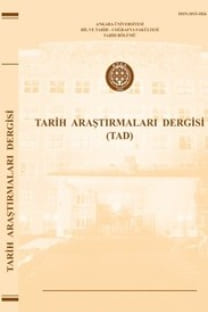Osmanlıların 1453 Öncesi İstanbul Kuşatmaları
Osmanlı devletinin gelişmesinde Rumeli'de takip edilen stratejilerin önemli katkıları vardır. Devletin gelişiminde takip edilen bu stratejilerden birisi de İstanbul' un ele geçirilmesiydi. İstanbul' un ele geçirilmesi imparatorluk olma yolunda ilerleyen Osmanlıların coğrafi, siyası ve ekonomik açılardan bir zorunluluğuydu. Bunun bilincinde olan Osmanlı hükümdarları, Orhan Bey zamanında başlayan ve Rumeli 'ye geçiş stratejilerinin bir parçası olan İstanbul' u ele geçirmek için bilinçli olarak girişimlerinde bulundular. Orhan Bey ve I. Murat zamanında henüz İstanbul'u kuşatacak güce erişememiş olan Osmanlılar bu gücü kendilerinde ilk defa I. Bayezit zamanında buldu ve bu hükümdar zamanında şehir iki kez kuşatıldı. Daha sonra Musa Çelebi ve II. Murat tarafından birer kez kuşatılan İstanbul, 1453 'te II. Mehmet tarafından ele geçirildi. Yapılan bu dört kuşatma, fetih giden yolda, hem Müslüman Türklerin hem de Gayrimüslim unsurların zihinlerindeki fetih şartlarının oluşmasına büyük katkı sağladı.
The Ottornan Inİtial Conquests of Istanbul Before 1453
The Ottoman strategies directed towards Rumelia greatly contributed tothe development of the Ottoman Empire. One of such vilal Ottoman strategieswas the conquest of Istanbul. The Ottoman, who proceeded impressiveconquests to become a vast empire, gave great geographical, polilical andeconomic prominence to the conquest of Istanbul. The Ottoman Sultans, whowere aware of the bils-greclt and small- of this prominent reality, knowingly and purposefully promoted various ratial strategies since the time of Orhwı Beyregarding the conquest of Rumelia through Istanbul. The Ottoman, who failedto fully conquer the city by 1453, began with the attempts for the surrender ofcity of Istanbul in the era of Bayezit i twice. Later, Istanbul was capturedseparetely by Musa Çelebi and Murat II, and fmally conquered by Mehmet II in1453, In the final analysis, both initial and advances in Istanbul considerably tothe 'conception of conquest' in the minds of both Muslims and non-Muslims.
